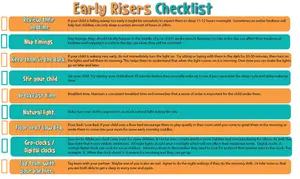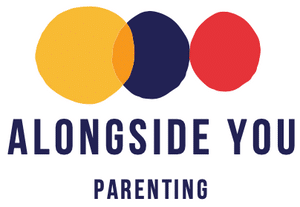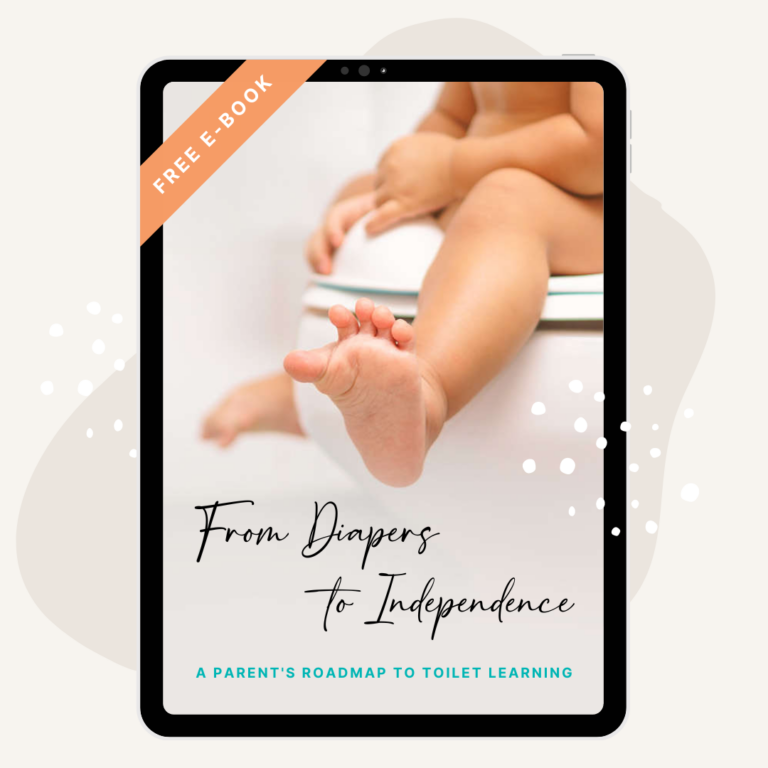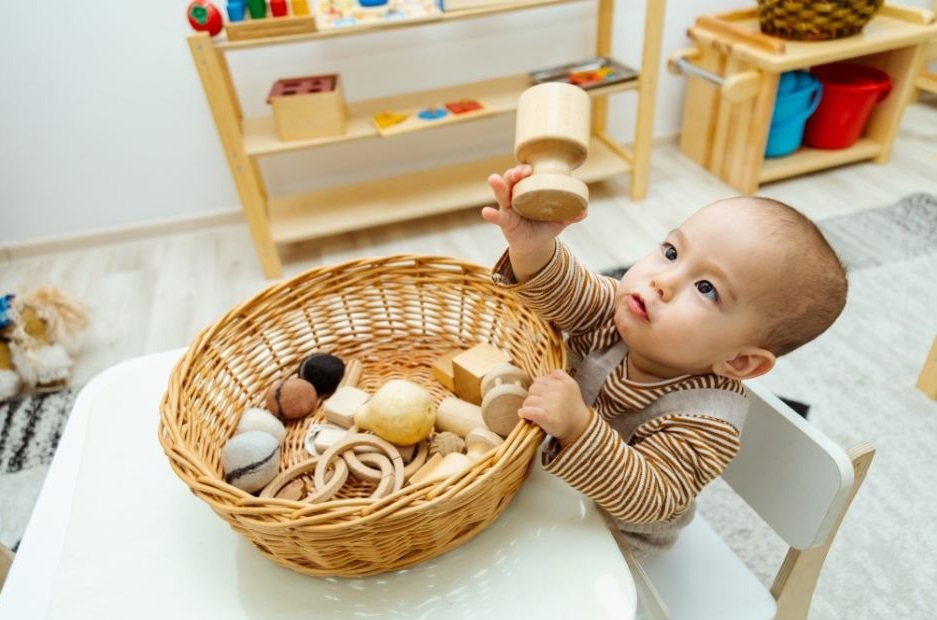How to stop children from waking up too early is a question that I am commonly asked, and something that I am very familiar with as my own son has always woken very early. 6am is considered a late start in our household! Although there are some benefits to an early riser, such as being the first and sometimes only one to the playpark and never missing a sunrise, it can be exhausting for parents.
Everyone has slightly different sleep/awake rhythms and biological clocks. This is sometimes referred to as owls (those who are more active in the evening) and larks (those more active in the morning). Babies and young children in general tend to be larks. This will shift as they get older and they will become more owls and then shift again back towards larks during adulthood.
Shift from frustration and challenges to opportunities for growth and confidence in your child’s toilet learning journey thanks to our Parent’s Roadmap to Toilet Learning the Montessori way.
Sometimes there is a mismatch between the child’s and adult’s biological chronotype. Consider if you are someone who likes to stay up and go to bed late, this can be a problem if your child is waking up early. Although it may feel like it’s your child that has a sleep issue, they don’t. The issue comes from the fact that the parent doesn’t like early risers.

Although we can’t change someone’s biological chronotype there are a few things that affect a circadian rhythm. These include:
- Eating times.
- Light exposure.
- Activity.
- Temperature.

With this in mind here are a few things that may help you cope better with your child’s early rising:
- Review their bedtime. If your child is falling asleep too early it might be unrealistic to expect them to sleep 11-12 hours overnight.
- Is bedtime too late. Sometimes an earlier bedtime will help but children can only sleep a certain amount of hours in 24hrs.
- Nap timings. Naps should ideally happen in the middle of your child’s awake period. Napping too late in the day can affect their tiredness at bedtime and napping too early in the day can mean they will be overtired.
- Keep them in the dark. If your child is waking very early, do not immediately turn the light on. Try sitting or laying with them in the dark for 20-30 minutes, then turn on the lights and tell them its morning. This helps them to understand that when the light comes on it is morning. Over time you can make the lights go on later and later.
- Stir your child. Try ‘stirring’ your child about 15 minutes before they normally wake up to see if you can restart the sleep cycle and delay wake up time.
- Breakfast time. Maintain a consistent breakfast time and remember that a sense of order is important for the child under three.
- Natural light. Make sure your child is exposed to as much natural light during the day.
- Floor bed / Low Bed. If your child uses a floor bed encourage them to play quietly in their room until you come to greet them in the morning or invite them to come into your room for some early morning cuddles.
- Gro-clocks. While gro-clocks may work for some children, it can be over complicated for some children and overstimulating for others. As well, the blue light that it uses inhibits melatonin. All night lights should emit a red light which will not affect their melatonin levels.
- Digital clocks. A normal digital clock can work for some children. Introduce them to the number they need to look for and post that number next to the clock. For example, ‘6’. When the clock shows ‘6’ it means it is morning and they can get up.
- Tag team with your partner. Maybe one of you is also an owl. Agree to do the night wakings if they do the morning shift. Or take turns so that you are both able to get a sleep in every now and again.
- Embrace your inner lark. Go to bed early yourself and enjoy everything a morning brings.

Download your FREE Early Risers Checklist!


A big special thanks to Melissa Chandler from Alongside You Parenting for this incredible article! For more information on what she does head to Alongside You Parenting on Facebook or have a look at www.alongsideyouparenting.com







